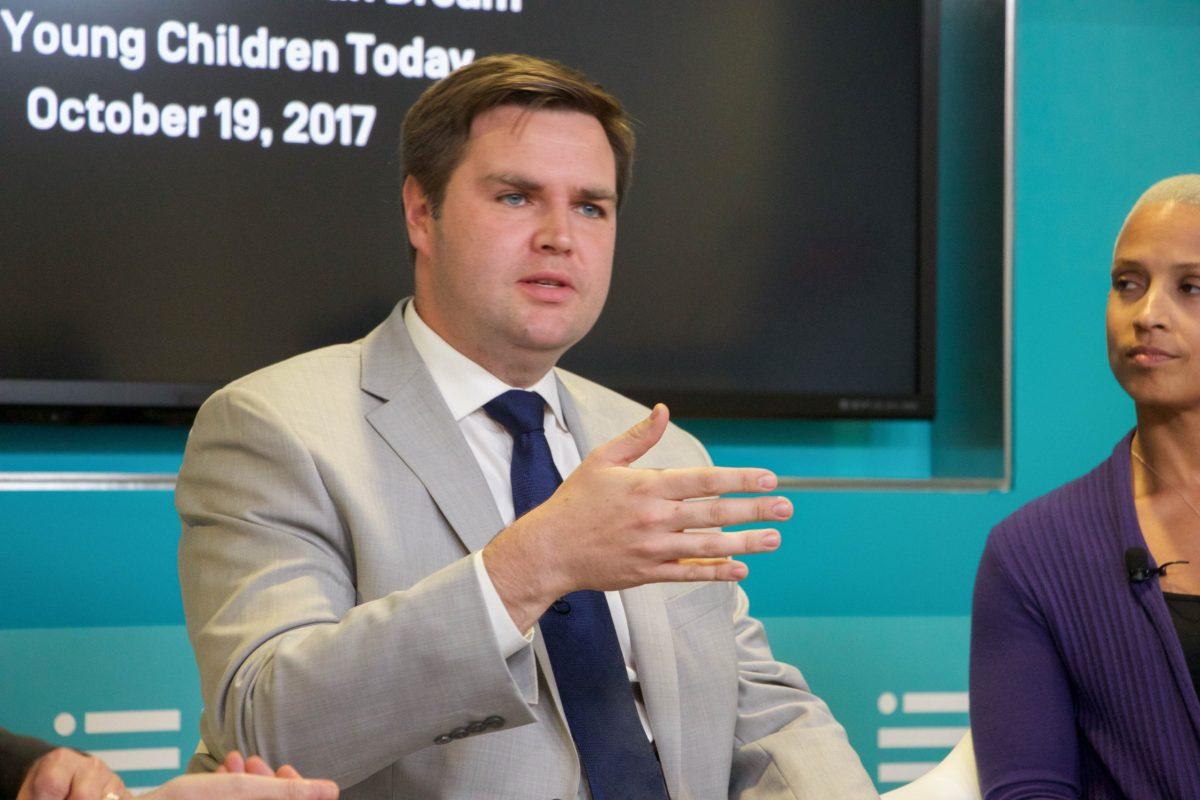JD Vance’s memoir, Hillbilly Elegy, begins with: “I’ll be the first to admit that I’ve accomplished nothing great in my life, certainly nothing that would justify a complete stranger paying money to read about it.” Now, to the millions of people who have been introduced to the Republican Vice Presidential Candidate by his brash commentary on “childless cat ladies”, his shameless pandering towards populist nativism, and his racist fear-mongering of Haitian immigrants – this simple, self-deprecating persona may come as a shock. It certainly did to me.
When I read “Hillbilly Elegy,” Vance’s bestselling memoir, I was struck by his humor and his humility; these are, perhaps, not the traits he is best known for. Throughout the novel, Vance details his childhood in an abusive household, his time in the military, and finally, his experiences as one of the only students attending Yale Law School coming from a comparatively rural area. I did not agree with many of his positions, most pointedly, his refusal to consider racism as a contributing factor towards the shift away from Democrats within the white, rural populations. Still, the image of the man I came away with was smart, contemplative, and compassionate. I respected his mindful and conscientious approach to dissecting the culture he had grown up with, including his coming to terms with how it has impacted him and the people he loves negatively. In a recent NYT op-ed, novelist John McWhorter described Vance’s memoir as an earnest attempt to “thread the needle (…) exploring societal issues without being co-opted by the temptations of partisanship.” Most significant, perhaps, was his description of his politically diverse friend group at Yale Law, where he would have civil discourse with both his liberal and conservative friends.
Vance’s shift in persona completely upends the thoughtfulness inherent in his memoir. In his Vice Presidential run, Vance transforms from a well-spoken, conscientious man to someone insistent on using his power and position to make broad, sweeping statements across America. When faced directly with fact-checking concerning his racist rhetoric in Springfield in an interview with CNN’s Dana Bash, he refused to back down: “If I have to create stories so that the American media actually pays attention to the suffering of the American people, then that’s what I’m going to do, Dana!” The difference between the Vance in “Hillbilly Elegy” and this blustering, spittle-flecked character is stark.
What are the motivations behind such a drastic change? The political and financial rewards have been pointed out countless times, but it’s the psychological perspective that particularly interests me. Observing the original political climate “Hillbilly Elegy” came out in, we can see that Vance had carved out a niche for himself as a sort of consultant for Democrats in explaining the appeal that Trump holds to white, rural voters. Initially strongly anti-Trump, he essentially functioned then as Liz Cheney does now: a conservative spokesperson valued amongst Democrats for their symbolic Anti-Trump positions, but does not ultimately have power over or representation for the rest of their conservative views on social programs, abortion, national spending, etc. Democratic condescension in combination with his shifting political identity would have been extraordinarily chafing.
There’s also foreshadowing in Hillbilly Elegy itself, where Vance details his own adaptability and innate rejection of liberal elitism. As a child, he would mold himself to various ideologies in an attempt to fit in, such as a brief stint intensely embracing Creationism to fit in with the ultra-religious family members on his father’s side. In Yale Law School, he feels adrift, part of the elite yet simultaneously too “hillbilly” for belonging. Perhaps the most indicative part of the novel is the conclusion, where he realizes that he isn’t actually interested in law and that he still hasn’t quite found a career that suits him. In a way, Trump’s brash populism and rejection of the “elite” liberal and conservative establishment alike may pose a siren’s call to Vance that other conservatives with similar positions don’t necessarily feel.
Ultimately, finishing this book, I felt a deep sadness. Vance has many excuses for his current positioning, but it doesn’t pardon him for using immigrants as easy targets or fanning the flames of political violence to rise on the political ladder. What makes him so despicable and disliked amongst the American electorate, according to FiveThirtyEight’s most recent poll on Vance’s negative 11 percent approval rating, is that he didn’t just turn his back on his principles—he also turned his back on his humanity and compassion.




